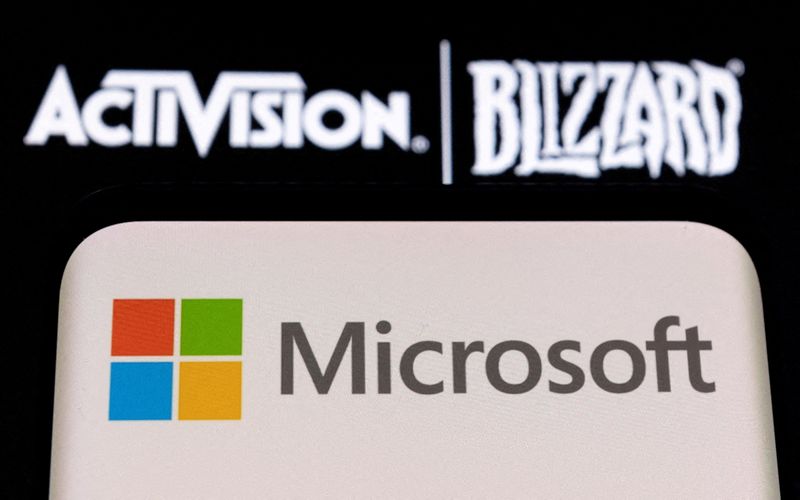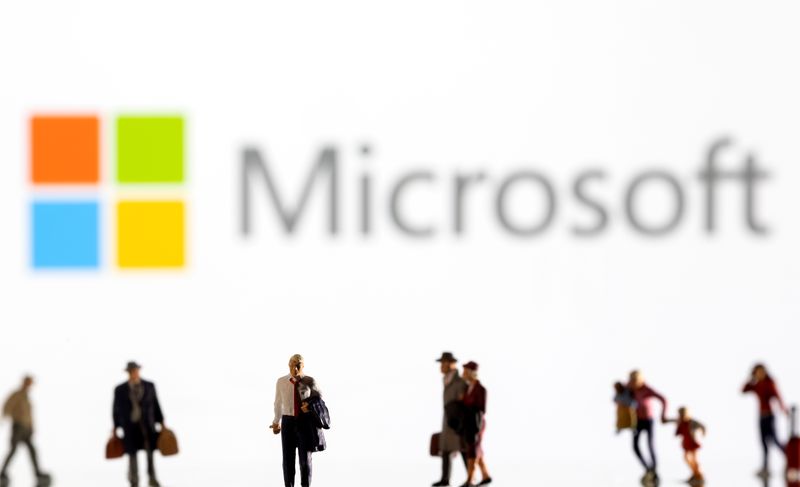By Foo Yun Chee
BRUSSELS (Reuters) -Microsoft is likely to offer remedies to EU antitrust regulators in the coming weeks to stave off formal objections to its $69 billion bid for "Call of Duty" maker Activision Blizzard (NASDAQ:ATVI), people familiar with the matter said.
The U.S. software giant and Xbox maker announced the deal in January to help it compete better with leaders Tencent and Sony (NYSE:SONY).
It has since then faced regulatory headwinds in the European Union, Britain and in the United States, with Sony criticising the deal and even calling for a regulatory veto.
The deadline for the European Commission, which is investigating the deal, to set out a formal list of competition concerns known as a statement of objection is in January. Offering remedies before such a document is issued could shorten the regulatory process.
"Ultimately, such a move could secure an early clearance with the European Commission and subsequently be used by the parties before other antitrust agencies," said Stephane Dionnet, a partner at law firm McDermott Will & Emery.
"However, it remains to be seen whether the active complainants will validate such concessions (in particular in terms of scope) and if behavioural remedies will also be accepted by the CMA and the FTC," he said, referring to the UK and U.S. antitrust agencies.
Microsoft (NASDAQ:MSFT)'s remedy would consist mainly of a 10-year licensing deal to Playstation owner Sony, another person with direct knowledge said.
Activision shares were up 2% after the Reuters story was published.
The EU competition watchdog, which is scheduled to decide on the deal by April 11, and Sony declined to comment.
Microsoft said it was working with the Commission to address valid marketplace concerns.

"Sony, as the industry leader, says it is worried about Call of Duty, but we've said we are committed to making the same game available on the same day on both Xbox and PlayStation. We want people to have more access to games, not less," a Microsoft spokesperson said.
The deal has been cleared unconditionally in Brazil, Saudi Arabia and Serbia.
